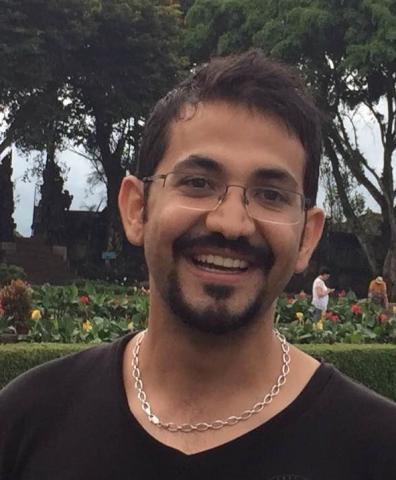Primary supervisor
Hamid RezatofighiCo-supervisors
- Prof. Ian Reid, University of Adelaide
Research area
Data Science and Artificial IntelligenceIn this project, the goal is to develop a new method (using computer vision and machine learning techniques) for robotic navigation in which goals can be specified at a much higher level of abstraction than has previously been possible. This will be achieved using deep learning to make informed predictions about a scene layout and navigating as an active observer in which the predictions inform actions. The outcome will be robotic agents capable of effective and efficient navigation and operation in previously unseen environments, and the ability to control such agents with more human-like instructions. Such capabilities are desirable, and in some cases essential, for autonomous robots in a variety of important application areas including automated warehousing and high-level control of autonomous vehicles.
The aims of our project are therefore summarised as follows
Aim1: Develop representations and deep learning methods that capture the knowledge of scene layouts to enable prediction of high-level scene structure useful for local navigation as well as global planning
Aim2: Link higher-level scene representations to planning, creating methods to actively explore an environment and dynamically update imagined and real scene representations.
Aim3: Integrate Aims 1 and 2 to create a new method for robotic navigation based on high-level visual entities in the environment, enabling navigation in previously un-mapped environments
Required knowledge
Your profile:
We are looking for a highly motivated candidate, who is eager to get involved in cutting edge, creative research with real-world applications.
Essential Skills:
- An Honour/Master degree in Computer Science, Mathematics, Physics, or Engineering.
- A background in machine learning and computer vision.
- Excellent skills in areas such as applied mathematics, statistics/probability theory.
- Programming skills in a variety of languages (e.g., Python and C/C++/C#).
- Fluency in written and spoken English, with an ability to communicate scientific ideas to an expert audience, both orally and written
Desirable Skills
- Proficient programmer in one of the main Deep Learning libraries (e.g., Darknet, TensorFlow, PyTorch, Keras).
- Experience with the Robotic Operating System (ROS)
- Previous experience working with state-of-the-art computer vision or other machine learning/deep learning applications, especially related to 3D vision, visual navigation, SLAM system, 3D object reconstruction etc.
Track record of a publication in top tier Computer Vision, Robotics or Artificial Intelligence conferences and/or journals would be also advantageous
This position is available to both domestic and international candidates. However, since it needs to be filled immediately, at this stage we only consider those applicants who are currently in Australia.
